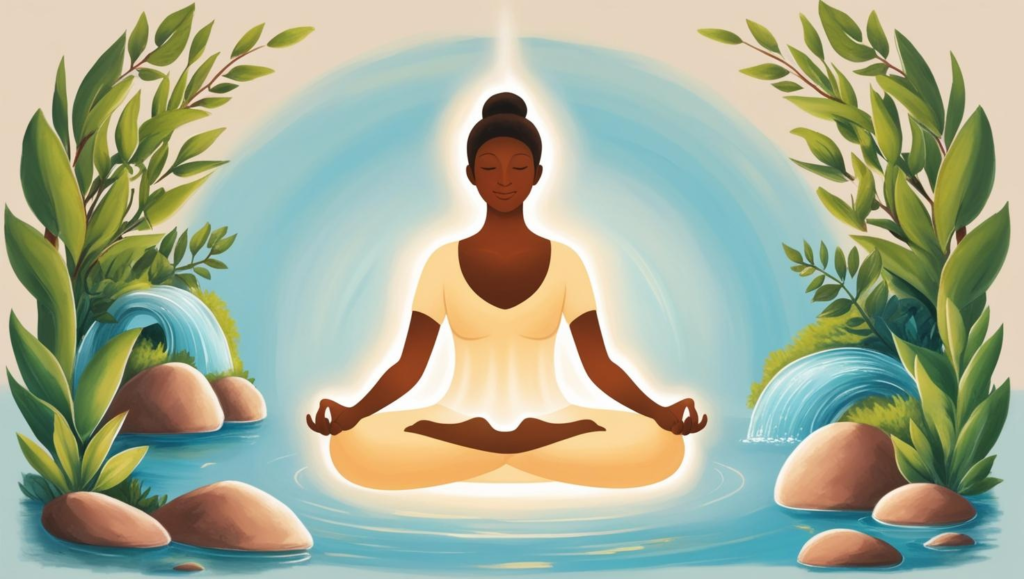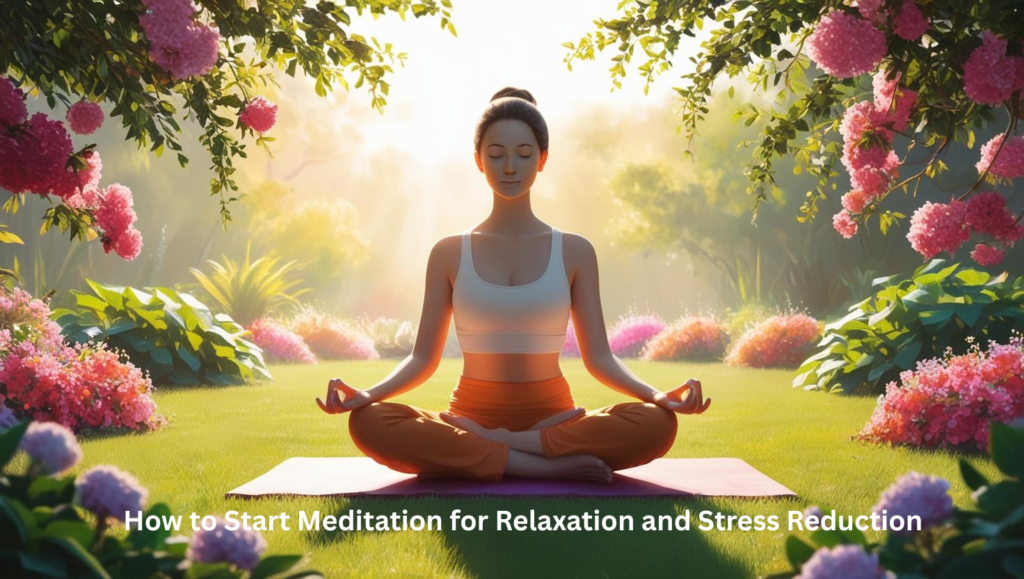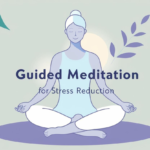In today’s fast-paced world, stress has become a constant companion for many. Whether it’s work deadlines, family responsibilities, or the endless scroll of social media, finding calm amidst the storm can feel impossible. Fortunately, meditation for relaxation and stress reduction offers a simple, effective way to reclaim your peace of mind. This ancient practice, backed by modern science, helps quiet the mind, soothe the body, and restore balance. But what exactly is meditation for relaxation and stress reduction, and how can it transform your daily life? Let’s explore this powerful tool step-by-step.

What Is Meditation for Relaxation and Stress Reduction?
At its core, meditation for relaxation and stress reduction is a mindfulness practice designed to calm your thoughts and release tension. Unlike high-intensity workouts or complex therapies, it requires no special equipment—just a quiet space and a few minutes of your time. By focusing on your breath, a mantra, or simply the present moment, meditation helps you step away from the chaos and into a state of tranquility.
Why does this matter? Stress triggers the body’s “fight or flight” response, flooding you with cortisol and adrenaline. Over time, this can lead to anxiety, fatigue, and even physical health issues like high blood pressure. Meditation for relaxation and stress reduction counters this by activating the parasympathetic nervous system, which promotes rest and recovery. Studies, like those from the National Institutes of Health, show it lowers cortisol levels, making it a natural antidote to stress.
How Does Meditation Help with Relaxation and Stress?
You might wonder: how can sitting still bring such profound benefits? The answer lies in how meditation for relaxation and stress reduction rewires your brain. When you meditate, you train your mind to focus on the here and now, reducing the mental chatter that fuels stress. Neuroscientists have found that regular meditation increases activity in the prefrontal cortex—the area linked to calm decision-making—while shrinking the amygdala, the brain’s stress center.
For relaxation, meditation slows your heart rate and deepens your breathing, signaling to your body that it’s safe to unwind. This dual action—calming both mind and body—makes meditation for relaxation and stress reduction a powerhouse for well-being. Imagine it as a reset button you can press anytime you feel overwhelmed.
Who Can Benefit from Meditation for Relaxation and Stress Reduction?
Is meditation for relaxation and stress reduction only for yoga enthusiasts or spiritual seekers? Not at all! This practice is for anyone—busy professionals, parents, students, or retirees. If you’ve ever felt frazzled by a looming deadline or tense after a tough day, meditation can help. Even beginners with no prior experience can start small and see results.
What’s more, it’s adaptable to all lifestyles. Whether you have five minutes or an hour, meditation for relaxation and stress reduction fits into your schedule. It’s especially valuable for those juggling multiple roles, as it offers a quick way to recharge without needing a gym membership or expensive gear.
How to Start Meditation for Relaxation and Stress Reduction

Ready to try meditation for relaxation and stress reduction? You don’t need to be an expert to begin. Here’s a simple guide to get you started:
- Find a Quiet Spot: Choose a place where you won’t be disturbed—a corner of your bedroom, a park bench, or even your car during a break.
- Set a Timer: Start with 5–10 minutes. Apps like Calm or Headspace can help if you’re new to timing meditation.
- Sit Comfortably: No need for a perfect lotus pose—just sit or lie down in a way that feels good.
- Focus on Your Breath: Inhale deeply through your nose, then exhale slowly. Notice the air moving in and out.
- Let Thoughts Pass: If your mind wanders (and it will!), gently bring it back to your breath without judgment.
This basic practice of meditation for relaxation and stress reduction is enough to ease tension. As you get comfortable, you can explore guided meditations or add calming music to enhance the experience.
What Are the Best Techniques for Meditation?
Not sure which style of meditation for relaxation and stress reduction suits you? Here are a few popular options:
- Mindfulness Meditation: Focus on your breath or a sensation, like the feel of your feet on the ground. This practice is great for grounding yourself in the moment.
- Body Scan Meditation: Mentally scan your body from head to toe, releasing tension as you go. This is ideal for physical relaxation.
- Guided Meditation: Listen to a recording that walks you through a peaceful scene, like a forest or beach. Perfect for beginners.
- Mantra Meditation: Repeat a calming word or phrase, like “peace” or “calm,” to quiet your mind.
Each technique supports meditation for relaxation and stress reduction, so experiment to find what resonates with you. What works one day might differ the next, and that’s okay!
How Often Should You Practice Meditation?
How frequently should you do meditation for relaxation and stress reduction to see results? Consistency matters more than duration. Even 5–10 minutes daily can lower stress levels within a week, according to research from Harvard Medical School. For deeper relaxation, aim for 20 minutes once or twice a day.
The key is to make it a habit. Try meditating at the same time—like morning to start your day calm or evening to unwind. Over time, meditation for relaxation and stress reduction becomes second nature, like brushing your teeth.
What Science Says About Meditation for Stress Relief
Still skeptical about meditation for relaxation and stress reduction? The science is compelling. A 2018 study in Frontiers in Immunology found that regular meditation reduces inflammation linked to stress. Another from JAMA Internal Medicine showed it improves anxiety and depression symptoms as effectively as some therapies.
What’s the takeaway? Meditation for relaxation and stress reduction isn’t just a feel-good trend—it’s a proven method to manage stress and enhance mental health. It’s like giving your brain a daily vacation without leaving home.
Can Meditation Replace Other Stress Relief Methods?
Can meditation for relaxation and stress reduction stand alone, or should it pair with other strategies? While it’s incredibly effective, it’s not a one-size-fits-all fix. Combining it with exercise, a healthy diet, or talking to a friend can amplify its benefits. Think of meditation as the foundation of a stress-busting toolkit—powerful on its own but even better with support.
For example, pairing meditation for relaxation and stress reduction with a walk in nature doubles down on calming effects. It’s about finding what balance works for you.
Common Challenges and How to Overcome Them
What if meditation for relaxation and stress reduction feels hard at first? It’s normal to struggle with a wandering mind or restlessness. Here’s how to push through:
- Mind Wanders: Gently refocus on your breath—no need to get frustrated.
- No Time: Start with just 2 minutes; even that counts!
- Feeling Restless: Try a walking meditation instead of sitting still.
Patience is key. Meditation for relaxation and stress reduction is a skill that grows with practice, not perfection.
Why Choose Meditation Over Other Relaxation Techniques?
Why opt for meditation for relaxation and stress reduction instead of, say, watching TV or scrolling your phone? Unlike passive distractions, meditation actively rewires your stress response. It’s free, portable, and doesn’t rely on external tools. Plus, it builds resilience, so you’re better equipped to handle stress long-term.
Real-Life Benefits of Meditation
What does meditation for relaxation and stress reduction look like in action? Picture this: After a hectic day, you sit for 10 minutes, breathe deeply, and feel the tension melt away. You sleep better, wake up refreshed, and tackle challenges with a clearer head. That’s the magic of this practice—small effort, big rewards.
Final Thoughts
Meditation for relaxation and stress reduction is more than a trend—it’s a lifeline in our busy lives. Whether you’re new to it or looking to deepen your practice, it offers a path to calm and clarity. So, why not give it a try? Set aside a few minutes today, breathe, and discover how meditation for relaxation and stress reduction can transform your world—one peaceful moment at a time.


